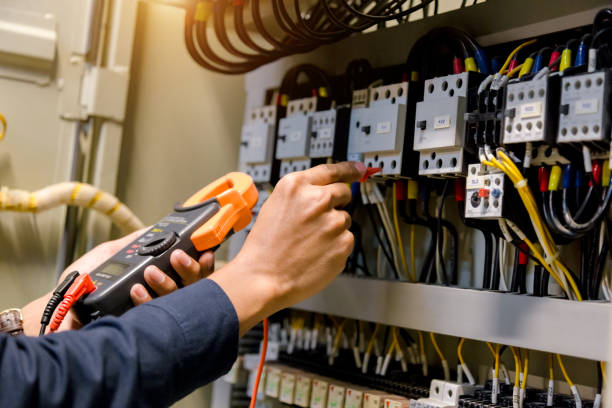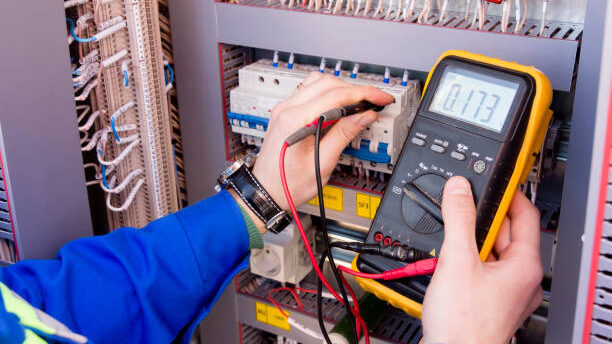Understanding the Lifespan of Electrical Safety Certificates
Getting an electrical safety certificate has many benefits, such as informing your tenants that the building is safe. But these certificates don’t last forever. In fact, they have expiration dates like many other safety certificates. We have written this article to help understand the lifespan of electrical safety certificates. Our article will cover how long the certificate usually lasts, the components of the certificate, and how you can renew it before it expires.
What Is An Electrical Safety Certificate?

An Electrical Safety Certificate, an Electrical Installation Condition Report (EICR), is an official paper confirming that the electrical systems in a property are safe and meet established standards. This certificate is usually provided after a certified electrician’s comprehensive examination and testing of the property’s electrical setup.
An Electrical Safety Certificate’s main goal is to evaluate the state of electrical installations, ensuring they adhere to the necessary safety standards and regulations. The inspection covers a range of elements throughout the property, such as wiring, sockets, switches, light fixtures, and other electrical components.
Lifespan of Electrical Safety Certificates
In the UK, Electrical Safety Certificates, also known as Electrical Installation Condition Reports (EICRs), typically last five to ten years. The specific duration depends on factors like property type, usage, and recommendations from the qualified electrician overseeing the inspection.
Property owners are encouraged to arrange regular inspections and renew their Electrical Safety Certificates within the advised timeframe to maintain ongoing compliance with safety regulations. The renewal process includes a follow-up inspection by a qualified electrician.
During this assessment, the electrician evaluates the current condition of the electrical installations and provides recommendations for any necessary repairs or improvements. This proactive approach ensures the continued safety and adherence to regulations in the property’s electrical systems.
Components of Electrical Safety Certificates

1. Wiring Evaluation
The inspection covers the condition and compliance of the property’s wiring. This includes an assessment of the wiring’s age, wear, and conformity with safety standards.
2. Socket and Switch Inspection
Thoroughly checking sockets and switches ensures they function well and meet safety standards.
3. Light Fitting Assessment
The condition and compliance of light fixtures are evaluated to identify potential hazards or faults.
4. Electrical Appliance Check
Any electrical appliances within the property are inspected to ensure they meet safety standards and pose no risks.
5. Consumer Unit (Fuse Box) Inspection
The consumer unit is scrutinized to verify its compliance with regulations, ensuring it provides adequate protection for the electrical circuits.
6. Earthing and Bonding Evaluation
The inspection includes assessing the earthing and bonding systems to confirm their effectiveness in safeguarding against electrical faults.
7. Identification of Defects and Hazards
The electrician identifies and documents any defects or hazards discovered during the inspection, categorizing them based on severity.
8. Circuit Testing
Circuits are tested to ensure proper functioning and to identify any issues related to overloading or faulty wiring.
9. Observations and Recommendations
The certificate includes detailed observations from the inspection and recommendations for necessary repairs or improvements to enhance safety.
How do you extend the lifespan of electrical safety certificates?

1. Schedule a Renewal Inspection
Contact a qualified and registered electrician to schedule a renewal inspection. Ensure the electrician is authorized to conduct Electrical Installation Condition Reports (EICRs).
2. Gather Relevant Documentation
Collect and provide relevant documentation from the previous inspection, including the existing Electrical Safety Certificate. This helps the electrician understand the history of the electrical installations.
3. Prepare the Property
Ensure that the property is accessible and that the electrician can easily inspect all relevant areas, including wiring, sockets, switches, and electrical appliances.
4. Inspection and Testing
The electrician will carefully examine and test the electrical setups. This includes assessing wiring conditions, checking the consumer unit (fuse box), inspecting sockets and switches, and testing circuits.
5. Identification of Defects
Suppose any defects or hazards are identified during the inspection. In that case, the electrician will document them and recommend necessary repairs or improvements.
6. Receive the Renewed Certificate
After a successful inspection and any required repairs, the electrician will issue a renewed Electrical Safety Certificate. This document confirms that the electrical installations meet safety standards.
7. Update Records
Keep a record of the renewed certificate and any recommendations provided by the electrician. This information is essential for future reference and potential property transactions.
8. Set a Reminder for the Next Renewal
Note the expiry date of the renewed certificate and set a reminder for the next renewal. This proactive approach ensures ongoing compliance with safety regulations.
Renewing Electrical Safety Certificates is an essential but easy process to ensure your property’s electrical systems are safe and follow the rules. Follow these steps and work with skilled electricians to keep your electrical environment safe and well-kept. Renewing regularly meets legal requirements and gives you peace of mind about your property’s safety.
Further Reading: Fire Safety Certificates for London Landlords
Conclusion
Knowing and understanding the lifespan of electrical safety certificates can help you better plan when renewing them. With all the benefits you can enjoy from this certificate, you should know when it expires so you can have peace of mind by renewing it promptly. Follow our guide to renew the certificate, and you can avoid hassle.
FAQs
How often should I get an Electrical Safety Certificate?
Electrical Safety Certificates should be obtained every five to ten years or sooner if there are significant changes to the electrical installation.
Can I perform my electrical inspection for certification?
No, a qualified and registered electrician must conduct electrical inspections for certification. DIY inspections are not valid for obtaining Electrical Safety Certificates.
What happens if I lose my Electrical Safety Certificate?
If you lose your certificate, contact the electrician or inspection body who issued it. They can provide a replacement, ensuring you maintain compliance.
Do Electrical Safety Certificates expire?
Yes, these certificates have a validity period. Regular renewal is necessary to ensure ongoing electrical safety compliance.
Are there regional variations in regulations for Electrical Safety Certificates?
Yes, regulations can vary by region. It’s essential to be aware of local requirements and ensure compliance with specific regulations.

